In the Cardiomegaly, the abnormal enlargement of the heart muscle, is a serious disease that usually occurs as a result of an underlying disease and must be treated accordingly. There are a variety of diseases that can lead to cardiomegaly.
What is cardiomegaly?

The organ enlargement usually occurs as a result of another disease. However, too intense permanent physical stress (excessive athletic workouts) can also lead to it (athlete's heart). Other names for cardiomegaly are (acute) cardiac dilation, cardiac hypertrophy and cor bovinum (ox heart). During cardiac dilation, the interiors of the heart widen into the chest cavity.
The term "cardiac hypertrophy" indicates excessively grown heart muscle tissue: Due to various causes of the disease, the heart muscle has to pump more blood volume in order to supply all organs with sufficient oxygen. The exertion leads to an increased growth of the heart muscle tissue. Since the increased muscle mass in turn requires more oxygen, an even larger blood flow has to be pumped.
Since the body is often no longer able to do this, it leads to heart failure (heart failure). If cardiomegaly stays within certain limits, it is symptom-free and is often not recognized. With advanced heart enlargement, cardiac arrhythmias and heart failure can occur. Cardiac hypertrophy comes in two forms: right heart hypertrophy (RVH, Cor pulmonale) and left heart hypertrophy (LVH, only the left ventricle is affected).
causes
The underlying causes of cardiomegaly can be: valvular heart disease, hyperthyroidism, profound anemia, cardiomyopathy, pericarditis, hemochromatosis, cardiac amyloidosis, and diphtheria. In addition, the heart muscle can grow through excessive physiological stress (competitive sports, endurance sports).
Cardiomyopathy is a congenital, chronic heart muscle disease that results in a weakened pump function. It is often associated with an enlarged liver, progressive muscle weakness, and difficulty breathing. In medicine, pericarditis is the inflammation of the pericardium. Patients with the rare haemochromatosis have high levels of iron in their blood.
In cardiac amyloidosis, a rare immune disease, the liver produces proteins that accumulate in the heart tissue and can no longer be broken down. Persistent physical overload through exercise can also lead to cardiomegaly. The enlarged heart muscle can then no longer be supplied with sufficient oxygen. In other cases the conduction system is disturbed. Younger athletes in particular are at increased risk of premature sudden cardiac death.
Diseases with this symptom
- Valvular heart disease
- Cardiomyopathy
- Amyloidosis
- Overactive thyroid
- Pericarditis
- diphtheria
- Anemia, iron deficiency anemia
- Iron storage disease
- Dilated cardiomyopathy
Diagnosis & course
Cardiomegaly is - if the patient does not experience any symptoms - often only recognized by chance on the X-ray (chest X-ray in p.a. projection). The heart-thorax ratio (CTR) is an indicator of this disease. If the CTR value is above 0.5, there is a pathological enlargement of the heart. It relates the maximum transverse diameter of the heart silhouette to the maximum transverse inner diameter of the bony chest (thorax).
However, since the CTR value can also be increased by other diseases, the doctor must carry out further tests. With mobile X-ray devices, cardiomegaly is recognized by the fact that the heart silhouette touches the left wall of the thorax. The heart disease is also diagnosed with the help of echocardiography: It shows up in the form of a widened heartbeat. The course of cardiomegaly is - if it is not recognized and treated in time - progressive.
Symptoms that are typical for heart muscle weakness then occur: shortness of breath at rest and under exertion, nocturnal attacks of shortness of breath, increased nocturnal urination, edema, especially on the shins and ankles, nausea, fatigue, abdominal pain, severe weight loss, muscle weakness, Cardiac arrhythmias, impaired brain performance, cardiac asthma, cough, pulmonary edema, enlarged liver and spleen, ascites and cold extremities.
Complications
Cardiomegaly, i.e. an enlargement of the heart, can be pathological or physiological. Typically, endurance athletes usually have an enlarged heart, which does not cause any further complications. A pathologically enlarged heart, such as it can develop due to heart valve disease or high blood pressure, can develop into cardiac arrhythmias or cardiac insufficiency.
Typical cardiac arrhythmias are, for example, atrial or ventricular fibrillation. With atrial fibrillation, there is a great risk that thrombi will form, which can loosen and block vessels. When the blood clots form in the left atrium, they are flushed out into the lungs, causing a pulmonary embolism, which is characterized by shortness of breath and shortness of breath.
From the right atrium, the thrombi are usually flushed out in the direction of the cerebral vessels, which can result in a stroke. The failure symptoms depend on the location of the vascular occlusion. Other complications include heart failure, which cannot be cured and which significantly reduces the patient's life expectancy.
Heart failure can quickly turn into shock symptoms with a high heart rate and a sharp drop in blood pressure. It can also lead to a backlog of blood because the heart no longer pumps adequately. Edema is the result. The risk of sudden cardiac death is also increased.
When should you go to the doctor?
Cardiomegaly is always in need of treatment. As a rule, it cannot be determined by the patient himself, but is usually determined in an examination as a result of heart problems. Because cardiomegaly does not occur without a background, it must always be treated. It is the result of other heart-weakening causes and, if left untreated, would result in cardiac death.
If the diagnosis is made by the family doctor, he will advise you to visit a resident cardiologist and issue a referral. It is essential that doctors act quickly when making a diagnosis, since cardiomegaly is an advanced disease. This information is given to the patient during a counseling and therapy conversation. It is the patient's own responsibility to have the causes treated. Which treatment is advisable or necessary for those affected cannot be explained in this context, these always relate to the cause and can vary from medication to surgery.
Doctors & therapists in your area
Treatment & Therapy
Cardiomegaly is generally treated as follows: Determining the body mass index (BMI) and examining body composition means that the patient either has to go on a weight loss diet under medical supervision or - in the case of underweight - participate in a program for underweight people . He is given antihypertensive medication and has to undergo regular medical checks.
To prevent further heart damage, he is vaccinated against pneumococci and flu. He has to change his diet according to the underlying disease (increased amount of vegetables and fruit, high fiber, a fish dish twice a week to provide omega-3 and omega-6 fatty acids) and may also be taking a suitable dietary supplement. The beta-blockers and cardiac glycosides prescribed by the doctor improve his heart function and reduce the heart rate.
Dehydrating agents remove excess fluid from the bloodstream. Cardiomegaly patients with aortic valve stenosis receive a new mechanical or biological aortic valve through surgery. They also have to take antihypertensive drugs. If the heart has enlarged as a result of long-term alcohol abuse, a withdrawal treatment must be carried out.
In pericarditis, the underlying virus or bacterial infection or autoimmune disease is treated appropriately. Monthly bloodletting helps with hemochromatosis, while cardiac amyloidase requires a heart transplant. Congenital heart defects such as the foramen ovale can also only be removed surgically. If the patient has an isolated right-sided enlargement of the heart, the causative COPD (chronic obstructive pulmonary disease) and pulmonary fibrosis are treated. Cardiac arrhythmias make the use of a pacemaker necessary.
Outlook & forecast
Typically, cardiomegaly is a serious symptom that, if left untreated, can result in death. Since it is always caused by an underlying disease, the underlying disease is treated primarily. In most cases, the patient's quality of life is extremely limited by cardiomegaly. It is no longer possible to easily perform physical activities and sports. This often leads to shortness of breath, which can lead to a panic attack in many people. The shortness of breath also leads to dizziness and sometimes to vomiting. Often those affected also suffer from tiredness that cannot be compensated by sleep.
There is also abdominal pain and underweight. The liver and spleen can enlarge and cause pain. In the worst case, the development of a weak heart can also lead to death.
The treatment is usually causal and always targets the underlying disease. This is usually treated with the help of medication or surgery. If necessary, the patient is then dependent on a pacemaker. Life expectancy will not be limited if treatment is started early and is successful. If the heart enlargement is caused by the abuse of alcohol, the damage can usually not be reversed.
prevention
To prevent cardiomegaly, it is advisable to practice a healthy lifestyle and only exercise moderately. Regular examinations by a specialist help to identify the heart disease at an early stage and to initiate the appropriate treatments. In addition, the patient should make sure that he regularly takes the medication necessary for his underlying disease and undergoes the prescribed therapies.
You can do that yourself
In most cases, if you have cardiomegaly, a healthy lifestyle will help. The patient should have a healthy diet and exercise. This includes drinking plenty of fluids. Quitting alcohol and other drugs also has a positive effect on cardiomegaly and can prevent it and limit its symptoms. Smoking should also be given up.
In any case, the person concerned must make sure to take all prescribed medication so that there are no consequential damages. Stressful situations, hectic movements and discussions should be avoided as they can cause high blood pressure. It is also not recommended to engage in heavy physical activity. In this case it may be necessary to change jobs. Valerian can be taken either as a tea or in pill form for calming purposes. Melissa tea also has a positive effect on the heart.
Visits to the sauna can generally strengthen the cardiovascular system and prevent further problems and ailments in the heart. People with cardiomegaly should keep their temperature low. Nuts also help against cardiomegaly. As a rule, hazelnuts and walnuts in particular are very healthy as they are rich in omega 3 and 6 fatty acids. In any case, the patient should still see a cardiologist so that there are no unexpected complications.








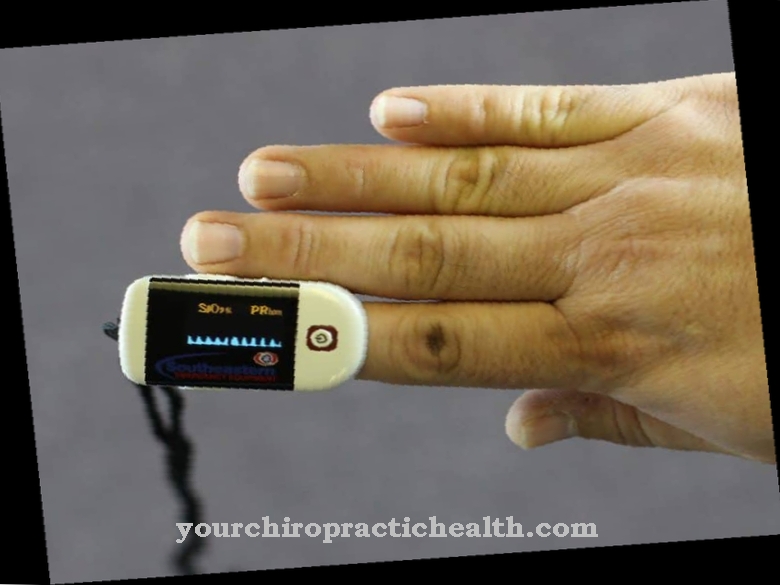
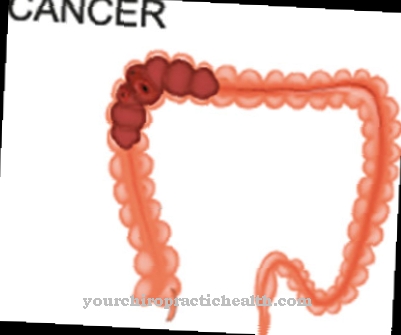
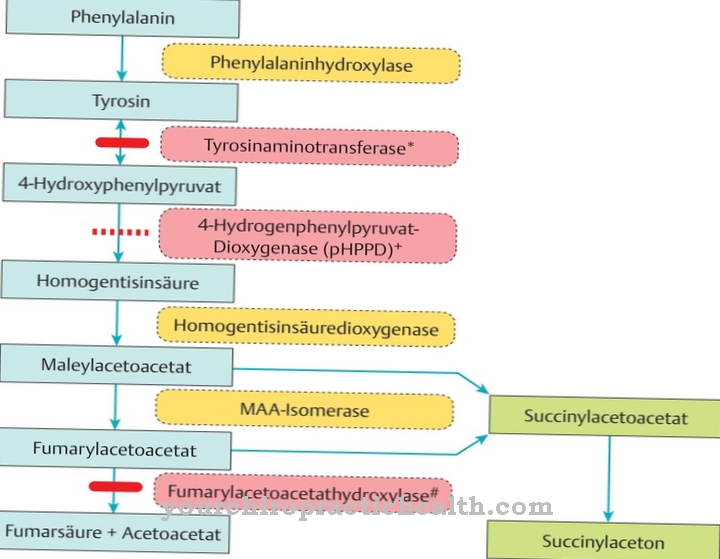

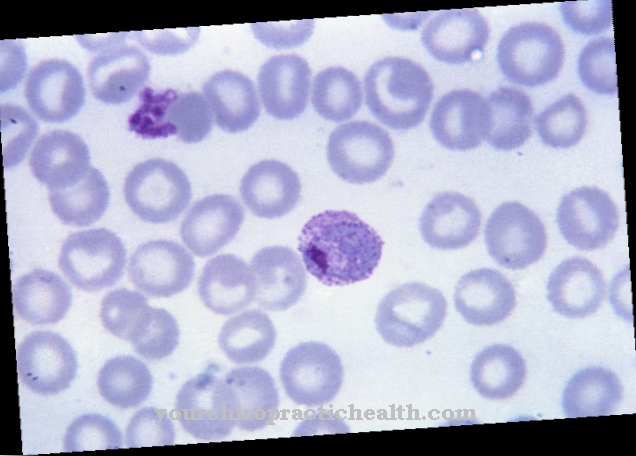


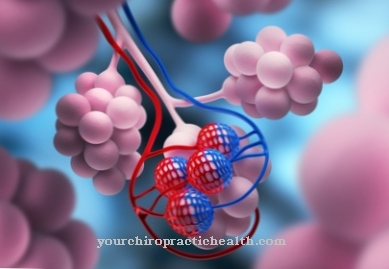

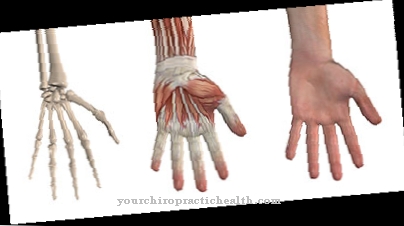






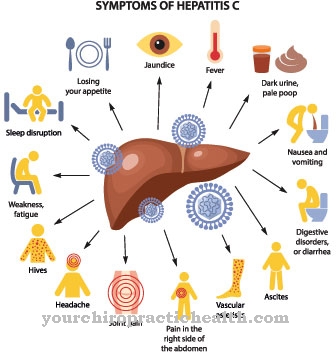
.jpg)


